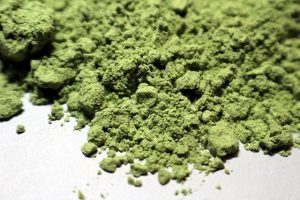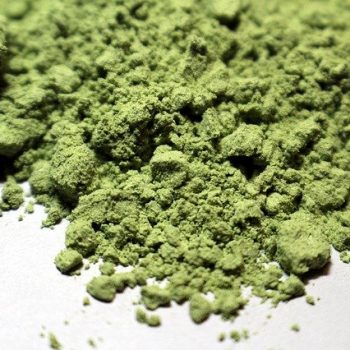It’s always interesting to see what supplement additions people make to their dog’s diet…but they don’t really understand why. Supplement marketing often makes people feel their dog will really be missing out if they don’t feed this ONE thing. Unfortunately, that one thing turns into a box full of supplements and people lose track if the addition even made a positive difference.
These are a few of the more common “whole food” supplements that we find people add for various benefits.
- Seed mixtures- chia, flax, hemp, sesame, pumpkin
- Goat’s milk
- Colostrum
- Phytoplankton
- Enzyme/probiotic/prebiotic mixtures
- Seeds- sesame, chia, flax, hemp -people seem to worry about balancing fats – if you feed an NRC balanced diet, you should have balanced fats. Seeds (even ground) are not the best source of fat or minerals for dogs. If we need additional ~6 or ~3 we choose a high-quality oil.
- Goat’s milk- fermented goat milk can be a good probiotic source for some dogs. But it does contain more fat than some dogs can tolerate and adds calories (~20 per oz)- most people tend to feed quite a bit of it daily.
Some of the mineral amounts in 1 oz goat milk:
1gm of protein,
.013mg of copper
.014mg of iron
58mg of potassium
.085mg of Zinc
For perspective, a 40lb dog needs (daily)
1.76mg Copper
8.79mg Iron
1230.75mg Potassium
17.58mg Zinc
Obviously, diet should be providing those minerals, but this shows that the main benefit of goat’s milk is probiotics not vitamins and minerals. The very few times we’ve included goat milk in a diet is when we needed additional calories without too many extra minerals.
We personally prefer to feed full fat, grass fed (cow or goat) yogurt and other fermented foods for probiotic benefits- full fat yogurt averages less calories per oz than goat milk and can be more satiating for dogs. Sauerkraut and other fermented veggies add variety to the diet.
- Colostrum is the antibody-rich fluid in mother’s milk and puppies absorb it for a few days after birth. Gut closure prevents them from absorbing the antibodies after that time. Colostrum may have a local anti-inflammatory effect in the intestinal tract of some dogs, but we prefer to consider the underlying issue and address it rather than using colostrum as a band-aid. This is especially true for dogs with GI diseases because those dogs are more likely to be lactose intolerant.
- Phytoplankton- we see people feeding this as an alternative to fish oil for EPA/DHA and omega
 3’s. The worries over impurities in fish oil and fish are real concerns as they aren’t all equal – BUT the amount of phytoplankton needed to receive the needed EPA/DHA and omega 3’s is absolutely ridiculous – especially given the cost of the product. Even using it just for trace minerals would require higher amounts than are suggested by manufacturers! Rodney Habib had a video showing that 750 mg of EPA and DHA combined (about what a 50 pound dog needs) would cost about $48. 65 per day. Why would we choose that over some quality tested wild salmon oil or salmon which provides a far better profile of protein, vitamins, minerals and EFAs?
3’s. The worries over impurities in fish oil and fish are real concerns as they aren’t all equal – BUT the amount of phytoplankton needed to receive the needed EPA/DHA and omega 3’s is absolutely ridiculous – especially given the cost of the product. Even using it just for trace minerals would require higher amounts than are suggested by manufacturers! Rodney Habib had a video showing that 750 mg of EPA and DHA combined (about what a 50 pound dog needs) would cost about $48. 65 per day. Why would we choose that over some quality tested wild salmon oil or salmon which provides a far better profile of protein, vitamins, minerals and EFAs?
- Enzyme/probiotic/prebiotic mixtures (as with any mixture) create a loss of control for the dog parent. It becomes impossible to know which if any of the ingredients in these blends is helping, doing nothing, or even causing a reaction. We prefer a clean approach – one item at a time if needed. Our own dogs consume foods that act as prebiotics and probiotics.
In summary, what we are seeing is that people have become almost obsessed with adding whole food supplements under the assumption that whole foods can’t do any harm- and they don’t want their dog to miss out on anything that could provide benefits.
Ensuring your dog’s fresh food diet is TRULY balanced, (to us that means to NRC) ensures your dog really is getting all the nutrients they need for optimal health. If there is a need for additions, then they can be added thoughtfully one at a time with attention paid to whether they are actually helping. When we have a client trim out all these extras, many of them realize that their dog’s digestive issues calm down!
Monica Segal & Jody Zesko

